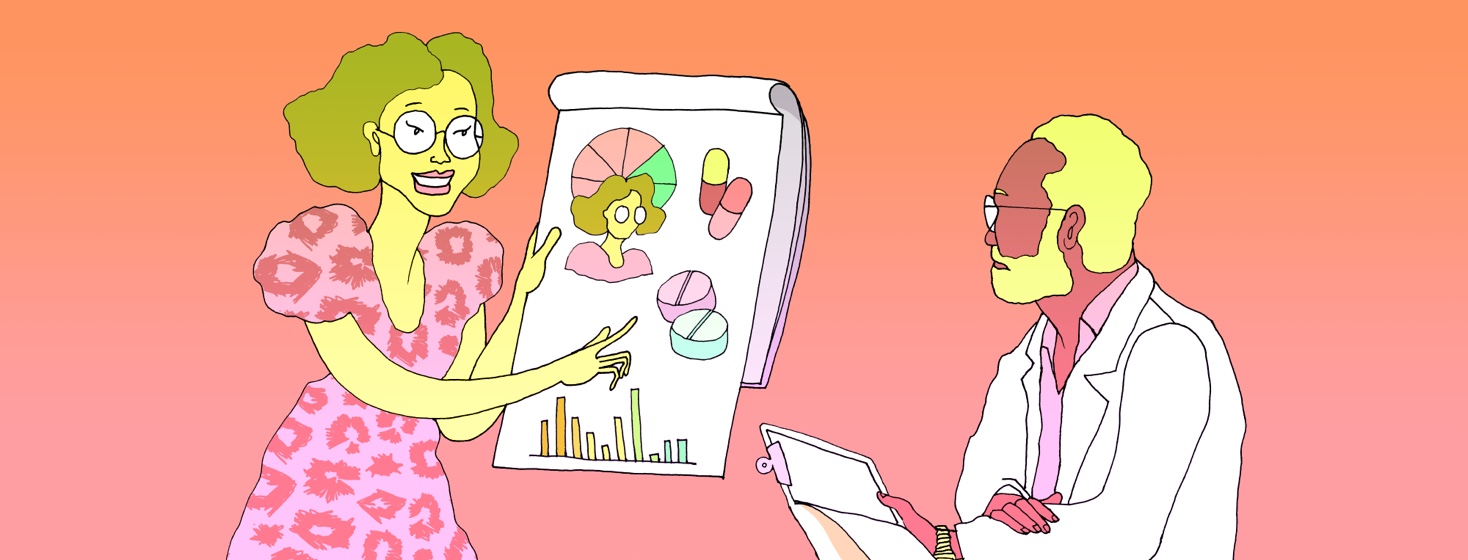Medical Gaslighting and How to Advocate for Yourself
The term "gaslighting" has been around since the 1930s. It has been defined as the act of manipulating someone in a way that can make them doubt themselves and their view of reality. But the meaning has changed over time to include simply misleading another person to gain something in return.1
Gaslighting can happen in many situations, including healthcare. If you have felt dismissed or ignored by a doctor, you may have experienced medical gaslighting. Women and people of color are more likely to face medical gaslighting. But there are ways to protect yourself from medical gaslighting and advocate for your health.2
What is medical gaslighting?
Medical gaslighting is when a healthcare provider ignores or minimizes your valid symptoms and concerns. The doctor may blame the symptoms on your mental health. They may claim that you are exaggerating or imagining the symptoms. They may try to convince you that nothing is wrong.2,3
With medical gaslighting, a doctor might treat you as though you are:2,3
- Irrational
- Uninformed
- Hysterical
- Difficult
- Emotional
- Making things up
- Lying
The dangers of medical gaslighting
Medical gaslighting can be dangerous to your health. When you are dismissed while seeking treatment, you may feel embarrassed or ashamed. You may begin to stop trusting your own body or intuition. Gaslighting also can create overall mistrust of the medical field.2,4
For some people, this mistrust may cause them to stop trying to get medical care. This can lead to delayed treatment and needless pain. It can lead to avoidable or ineffective treatments or tests. In some cases, a lack of medical attention could lead to severe illness or death.2,42,4
In fact, research shows that people who have felt racial discrimination in healthcare are more likely to delay care and are less likely to get recommended chronic disease screening.5
Who is more likely to experience medical gaslighting?
Doctors are human, just like everyone else. So, they may have certain beliefs or judgments about people based on race, gender, age, ability, and other factors. These beliefs are called biases, and they can affect the care the doctor gives.3-6
Biases may or may not be intentional. But they can lead to differences (disparities) in the way doctors treat certain patients.3-6
Women, people of color, and people from underserved groups are the most likely to face medical gaslighting because of the biases that doctors have. For example, studies have shown that women often are not treated the same as men in similar medical situations:3-7
- Women complaining of severe stomach pain in the emergency room had to wait 33 percent longer than men with the same symptoms.
- Women are less likely to receive intensive care treatment, regardless of how bad their illness is.
Ways to advocate for yourself
You are the expert of your own body, and your doctor should treat you as such. If you feel like your doctor dismisses or ignores what you tell them, there are a few ways you can advocate for yourself.4
Prepare for your appointments
Keep a record or log of symptoms prior to appointments. Track how long and how often you have symptoms. Try to describe your symptoms in detail. If you have pain, describe the type of pain and track how bad it is. Note if you have any new symptoms or if symptoms get worse. When it is time for an appointment, you will have a good record to look over with your doctor.3
Tell your doctor about your concerns
If something bothers you, say so. If you disagree with your doctor, let them know why. Relationships with doctors are supposed to be partnerships. They should allow for discussion.3
Bring a support person
Having another person in the room with you can be valuable. They can serve as a witness and help you remember any important details. They can offer another perspective to the doctor. Overall, they can help advocate for you, especially if a doctor is treating you unfairly.3
Ask questions
Ask your doctor all of your questions. If you are not getting helpful answers, try asking the questions again in a different way. Doing so may help the doctor consider other answers.3
Get a second opinion or find a new doctor
There is no need to settle when it comes to your health. If a doctor is not listening or taking your concerns seriously, find someone new. If you feel ignored or dismissed, seek out a second opinion. You can ask for referrals or look up specialists. Do not feel bad or guilty about finding a doctor who will give you the care you need.3
Report it
If you are repeatedly ignored or disrespected, ask to speak to the doctor’s supervisor. If that is not an option, report your experience to the state medical board.3
Have you ever experienced medical gaslighting during your MBC treatment?

Join the conversation